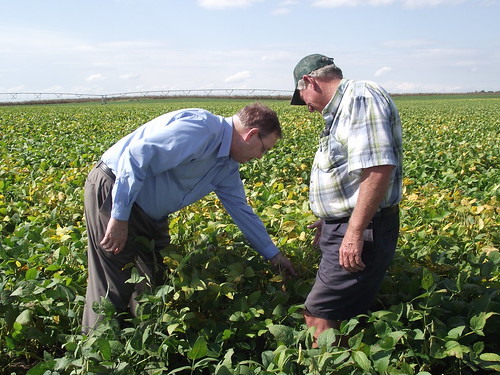
Earlier this fall, USDA Rural Development Under Secretary Dallas Tonsager traveled to Delaware and Maryland to tour two USDA funded wastewater system projects located in the Chesapeake Bay Watershed.
The first stop on the tour was to Laurel, Delaware where the Mayor outlined the desperate need for the extension of wastewater to the businesses located on the U.S. 13 artery. The businesses have marginal at best onsite wastewater systems. The water and sewer expansion project will lay the groundwork for the town’s recovery. Many businesses have been waiting for a long time for the wastewater infrastructure in hopes of expanding their stores. The expansion project is currently in design stage and will remove an estimated 52,300 gallons of nutrients per day from the watershed. The project is not only good for the Bay; it will be a shot in the arm for the local economy.
The next stop on the tour was to Frank Dill’s farm in Worton, Maryland. The Dill family stepped up to help their local community with a solution for the disposal of treated effluent (wastewater). Worton, Maryland is an unincorporated community governed by the Kent County Commissioners.
Because of more stringent environmental regulations the County was able to work with the Dill family to apply treated effluent to the grain crops grown on their fields through spray irrigation. Under the new environmental regulations, single point discharge of treated effluent is allowed in a tributary from November 1 – April 30. And, the new guidelines call for land application of treated effluent from May 1 – October 31; however, weather permitting – spray irrigation may occur all year. Between 50% and 100% of effluent is removed from the Chesapeake watershed. This is a win-win for all involved. There is no charge to the County for the land to apply the wastewater, the farmer has a source of water for his crops during a drought, and the project is good for the environment.
